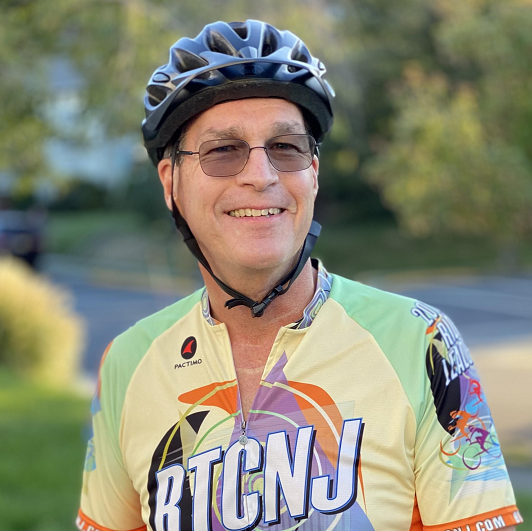Should You Do Genetic Testing for Cancer?

June 27, 2024
Genetic testing for cancer may be ‘trending,’ but it’s not necessarily helpful for everyone, says Robert S. Alter, M.D., head and neck medical oncologist and a genitourinary medical oncologist at John Theurer Cancer Center at Hackensack University Medical Center.
Here’s what you should know.
Who Should Get Genetic Testing for Cancer?
According to the National Cancer Institute, testing is generally recommended for people diagnosed with:
- Triple-negative breast cancer
- Ovarian cancer
- Pancreatic cancer
- Colorectal cancer before the age 50
- Metastatic prostate cancer
- Male breast cancer
“We look at a patient’s disease itself to determine if there is a genetic component to the cancer, because not every cancer has one,” Dr. Alter says. “It may come down to the risk of developing secondary diseases, or a concern about familial transmission to the next generation, or later transmission to siblings.”
Doctors want to identify mutations, those specific inherited changes contained in a patient’s genes that can increase cancer risk. The National Cancer Institute says approximately 5 to 10 percent of all cancers may be caused by these harmful genetic changes inherited from a parent.
The National Cancer Institute also recommends that people with certain family medical histories talk with their doctor or a genetic counselor to see if genetic testing is right for them, including those with a family member with a known inherited harmful genetic change that increases cancer risk and those who have multiple family members diagnosed with cancer.
When Dr. Alter meets a cancer patient, he likes to “take a step back.” “I’m looking at the whole picture, the whole patient, and I like to think of that first visit as a first date,” he says.
Dr. Alter addresses each new patient’s history and family history, during which he may find that the patient had prostate cancer, but siblings had breast cancer. “If I see a pattern that could indicate a risk of a genetic component, at that point, I suggest they speak to a genetic counselor to determine whether there is susceptibility to a gene that we should find,” he says.
How Does Genetic Testing Work?
Testing is accomplished with a blood or saliva sample, with results available within a few weeks. Health insurance may cover it, but always check with your insurance company and don’t assume.
Test results are classified into three main categories:
- Positive: A genetic change exists that is associated with a higher cancer risk. Your health care provider may make recommendations about screenings or lifestyle changes, for example.
- Negative: No harmful genetic changes were found.
- Variant of unknown significance: This is typically classified as benign, meaning there’s no cancer risk. This result also indicates a genetic change that simply doesn’t have enough data behind it to make a sound decision about risk of cancer.
“A person can have a disease and not have the gene, and vice versa, and just because you are positive doesn’t mean you will get cancer,” Dr. Alter says. “But with a 10 to 15 percent risk, if you’re positive, you want to be proactive about your health.”
At-home Testing vs. Screening With a Medical Professional
You’ve likely heard of widely available at-home, or direct-to-consumer, genetic screening products—for example, 23andMe that screens for three mutations of the BRCA1 and BRCA2 genes, which are associated with increased risk for breast, ovarian and prostate cancers.
Dr. Alter offers a caution about these tools: “It’s not as simple as a home pregnancy test, and the interpretation falls on the person doing the testing: you,” he says. “If you use an at-home screening test, and it comes back negative, that doesn’t mean you may not have to worry.”
The Centers for Disease Control and Prevention agrees that “this type of test may not give you a full understanding of your breast cancer risk, especially if breast cancer runs in your family.”
In addition, results may have emotional, social or financial implications. And results only provide limited information about a patient’s inherited condition, not whether they’ll exhibit symptoms, and the severity of those symptoms or whether a disorder might progress.
That’s where genetic counseling can be so helpful. A genetic counselor can advise on:
- More frequent screenings
- Preventative steps like diet and exercise changes
- Additional support services
Although genetic testing is a personal choice, Dr. Alter says no one should walk in their doctor’s door and just say, “I want to do genetic testing.” “It may not be needed,” he says. “There are certain people who don’t want to know this information and others who need to know. It’s important to know what you will do with the results before you do a test.”
Next Steps & Resources:
- Meet our source: Robert S. Alter, M.D.
- To make an appointment with an oncologist near you, call 800-822-8905 or visit our website
- Learn more about cancer care at Hackensack Meridian Health
- Schedule a cancer screening near you
The material provided through HealthU is intended to be used as general information only and should not replace the advice of your physician. Always consult your physician for individual care.





